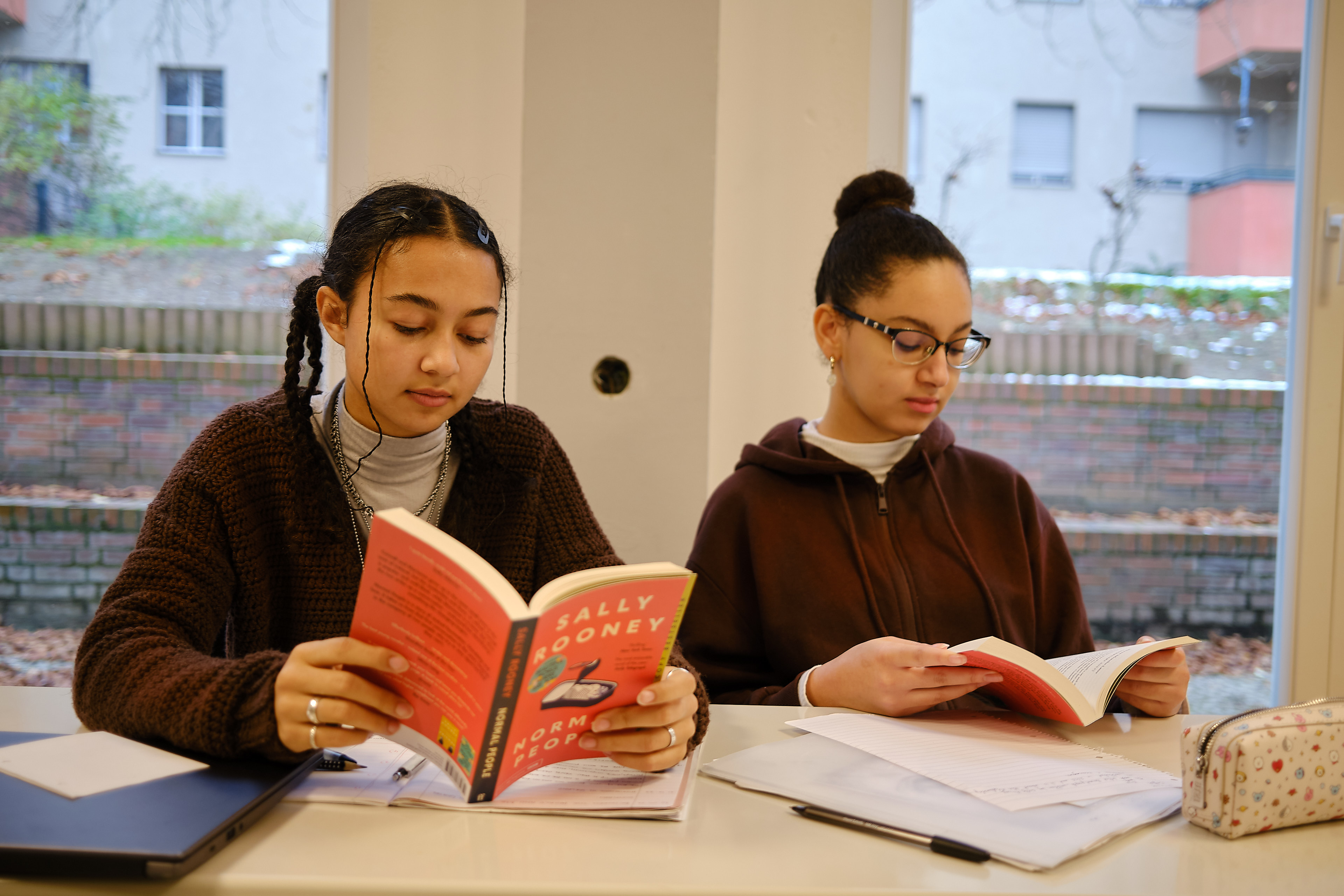
About
Bilingualism
Bilingual Education from First Grade to Abitur
As a bilingual school, we cater to students who have been raised in English and German.
Both our primary and secondary school students work and interact in an environment where everyone speaks at least these two languages in and out of the classroom.
In BBS Primary, our objective is for students to become bilingual and bi-literate, so they are able to read and write in both languages at the level of an educated native speaker.
Learning to write in two languages simultaneously is challenging. Students internalise rules and apply them from one language to the other. Because of this, progress may initially be slower than with monolingual children, but students who attend our Primary School become native-level proficient readers and writers in both languages.
When students begin at BBS Secondary, they are already bilingual and bi-literate.
Our aim is for all students to achieve local and international qualifications that will give them a wide range of options later in their lives.
After graduating from BBS with the bilingual Abitur, our students can go on to study at both German and international universities.
Language Assessment: At BBS, the language skills of applicants is assessed before entry to the school. This is to ensure they have the sufficient proficiency needed to thrive in our bilingual programme on a day-to-day basis.
Students entering Grade 1 are assessed on a Saturday in autumn, the year before they are ready to begin school. Most children at this age can not yet read or write, so the assessment is informal and conducted orally and aurally.
Students entering Grades 2 - 6 are invited to the school for a trial day, during which teachers evaluate the child’s ability to follow instructions, and to participate and interact with other students.
Students entering Grade 7 are assessed both orally and in writing in the March before they begin school.
Students entering Grades 8 - 11 are invited to the school for a trial day in order for both applicants and students to determine whether the school is a good fit. In some instances, students have a high proficiency in one of the school languages, but not native proficiency. They are assessed on a case-by-case basis. Prior school reports are taken into consideration, as is the student’s motivation.
